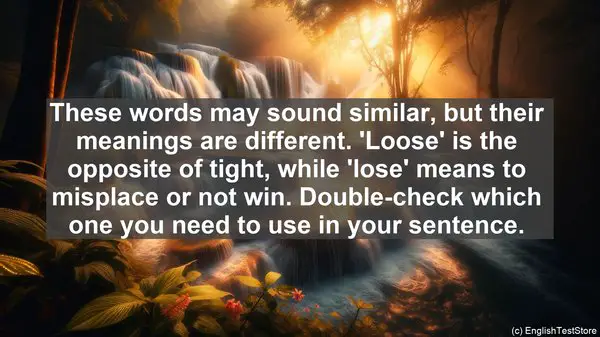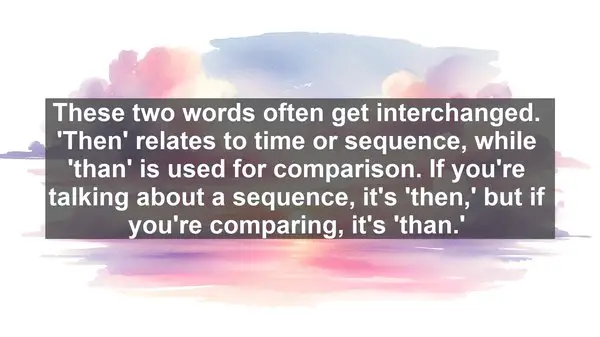Introduction
Today, we’re diving into the world of speech therapy and exploring the top 10 words that often trip us up. Whether you’re a beginner or have some experience, this lesson is packed with insights to help you communicate more effectively. Let’s get started!
1. Affect vs. Effect
One of the most common word pairs that cause confusion. ‘Affect’ is a verb, meaning to influence or change, while ‘effect’ is a noun, referring to the result or consequence. Remember, ‘affect’ is an action, and ‘effect’ is the outcome.
2. Their vs. There vs. They’re
Three words that sound the same but have different meanings. ‘Their’ indicates possession, ‘there’ refers to a place, and ‘they’re’ is a contraction of ‘they are.’ It’s crucial to use the right one to convey your message accurately.
3. Your vs. You’re
Another common mix-up. ‘Your’ shows possession, while ‘you’re’ is a contraction of ‘you are.’ Pay attention to the context to choose the correct one.
4. Then vs. Than
These two words often get interchanged. ‘Then’ relates to time or sequence, while ‘than’ is used for comparison. If you’re talking about a sequence, it’s ‘then,’ but if you’re comparing, it’s ‘than.’

5. Accept vs. Except
The only difference between these words is the ‘a’ and ‘e.’ ‘Accept’ means to receive or agree, while ‘except’ indicates exclusion. Remember, ‘accept’ is about inclusion, and ‘except’ is about exclusion.
6. Loose vs. Lose
These words may sound similar, but their meanings are different. ‘Loose’ is the opposite of tight, while ‘lose’ means to misplace or not win. Double-check which one you need to use in your sentence.
7. Its vs. It’s
The confusion here lies in the apostrophe. ‘Its’ shows possession, while ‘it’s’ is a contraction of ‘it is.’ If you can replace the word with ‘it is,’ then ‘it’s’ is the correct choice.
8. Principal vs. Principle
Two words that sound alike but have different meanings. ‘Principal’ refers to a person, often a school head, while ‘principle’ is a fundamental truth or belief. Think of the ‘pal’ in ‘principal’ as a person.

9. Compliment vs. Complement
These words are easily mixed up. ‘Compliment’ means to praise or admire, while ‘complement’ is something that completes or goes well with something else. If you’re talking about something that enhances or completes, it’s ‘complement.’
10. Weather vs. Whether
The only difference here is the ‘a’ and ‘e.’ ‘Weather’ refers to the atmospheric conditions, while ‘whether’ introduces a choice or possibility. If you’re talking about a decision, it’s ‘whether.’
